Story and photos by Leona George-Davidson
An Italian legend tells the story of a lion and a little bird. One autumn day, while working in his garden, the lion encounters a little bird with an injured wing. The lion bandages the little bird’s wing, and when they both look up, they notice that the little bird’s flock has flown for the winter, leaving the little bird with no family and no protection.
The lion invites the little bird to stay with him while the bird heals, and they spend the long winter together in the lion’s home, sharing home-cooked meals, reading by the crackling fire, sliding on sleds down mounds of buttery soft snow, and sleeping in cozy warm beds. (The little bird’s bed is a slipper.)
By springtime, the little bird’s wing is finally healed, and his flock returns. Yearning for his family and to fly again, the little bird looks knowingly at the lion. With a sigh and nod of recognition, the lion says, “Si, lo so.” (“Yes, I know.”) As the little bird flies off, the lion longingly reflects, “E la vita.” (“That’s life.”)
Like the kind and gentle lion, Giuseppe Tagliatesta knows the seasons of life. His expressive, chestnut-brown eyes, pink rose-petal cheeks, and smile as bright as the sun belie the strength and fortitude in his soul.
Giuseppe was born in Rome and spent a contented childhood with his parents. As a young man, he began working as an auto mechanic and soon thereafter met his wife to be at a dance.
Six months after their first child was born, Giuseppe’s wife was killed in a car accident in Rome. Their infant daughter, Laura, who was also in the car, survived. Shocked and alone, Giuseppe was left to raise his daughter on his own.
With a solemn voice and no tears, he says about the accident and his life, “Pazienza: La vita fa così.” (Patience, life is so.) Of these events, he says, “Good or bad, it is best to remember the beautiful days with joy, and have patience through the ugly days.”
After his wife died, he learned sign language and spent 20 years working for the state at an institution teaching sign to those who are deaf and mute.
As much as Giuseppe liked Rome, he found the bustling city to be too busy during the day and too dangerous at night, so once he retired, he decided to move to Cagli to be nearer his family – especially since his mother had also passed away and was buried in the family plot in the town’s cemetery.
These days, Giuseppe lives a quiet life with his daughter in Cagli. In the mornings, he drinks his coffee and works around the house. He eats lunch with Laura at home in the midday and spends his evenings watching sports and news on television. On most days, in late afternoon as the sun moves across the town piazza, Giuseppe can be found sitting with his friends on the wall along the Cagli City Hall. There, he says, they “chat about sports, politics, and life in general.”
When he and his friends at the wall say goodbye for the day, Giuseppe walks through town with his car keys jingling on a hook at his waist and his gum-soled shoes keeping him firmly grounded. He moves from street to street, buying groceries and chatting with friends along the way in all the stores he frequents.
On occasion, for a change of pace, he gets in his little red car, which he parks near the mechanic shop of his cousin, Fiorella, and heads out on the twisting and turning roads outside of Cagli. Sometimes he stops for a gelato; other times he just drives.
Giuseppe is a calm and confident driver, but the memory of his wife’s accident has stayed with him. When he wears his seat belt, he wedges a paper clip into the receptacle so that the belt is loose across his chest to allow him a rapid exit if needed. On the dashboard of his car sits a medallion representing San Cristoforo, protettore degli automobilisti, a blessing for protection as he navigates the precariously narrow and steep streets of Cagli and the Pesaro and Urbino provinces.
Ever mindful of the love he has for his family, Giuseppe regularly visits the Cagli cemetery to clean the tomb of his mother and father and the headstone of his maternal grandparents. He places bouquets of silk flowers next to the eternal flames at each stone.
Giuseppe’s most important visit of the day, however, is to see his Aunt Elma.
Elma Ricci is Giuseppe’s mother’s sister and his eldest-living relative. She lives in a walk-up apartment across the street from the Cagli bus station. When he arrives, Giuseppe doesn’t call up from the street as is the custom but rings her bell several times because her hearing has diminished over the years. Years of living show on Elma’s face, yet the twinkle in her eye is evident when she welcomes her nephew into the house. Chatter breaks out, and their love and family bond is palpable.
Elma’s four-room home is a living historical museum, filled with memorabilia from their ancestors. Full-size paintings of Elma’s son, who passed away long ago when he was 21, line the walls. Photos of her husband, who passed away recently at age 90, pepper the shelves, and handmade crafts, including a wood carving of the Pope by Giuseppe’s daughter, Laura, hang in the halls.
Giuseppe and Elma are a living testament to the strength of their family bond and their willingness to welcome all the changes that the seasons of life bring.
As the blossoms of the tiglio (lime) trees in Cagli begin to flutter to the ground and the sweet perfumed scent begins to wane in the fading summer light, Giuseppe drapes his arm around his aunt and reflects on his life and family, past and present. He is not sad. On the contrary, he is energized and joyful, looking forward to embracing every experience. As he says, “E La Vita – That is Life.”

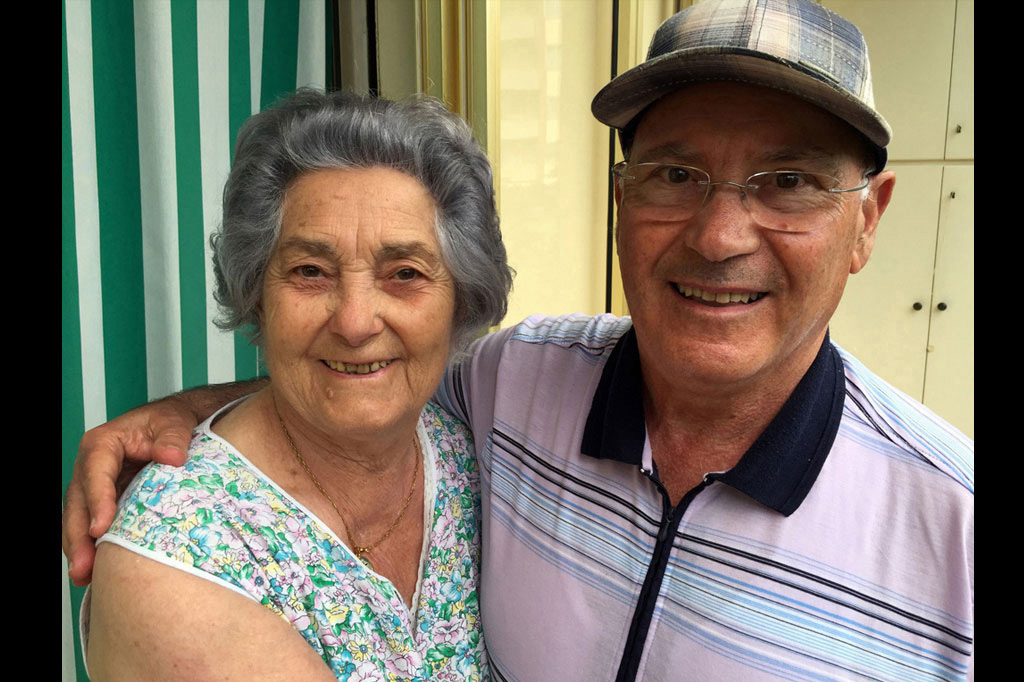
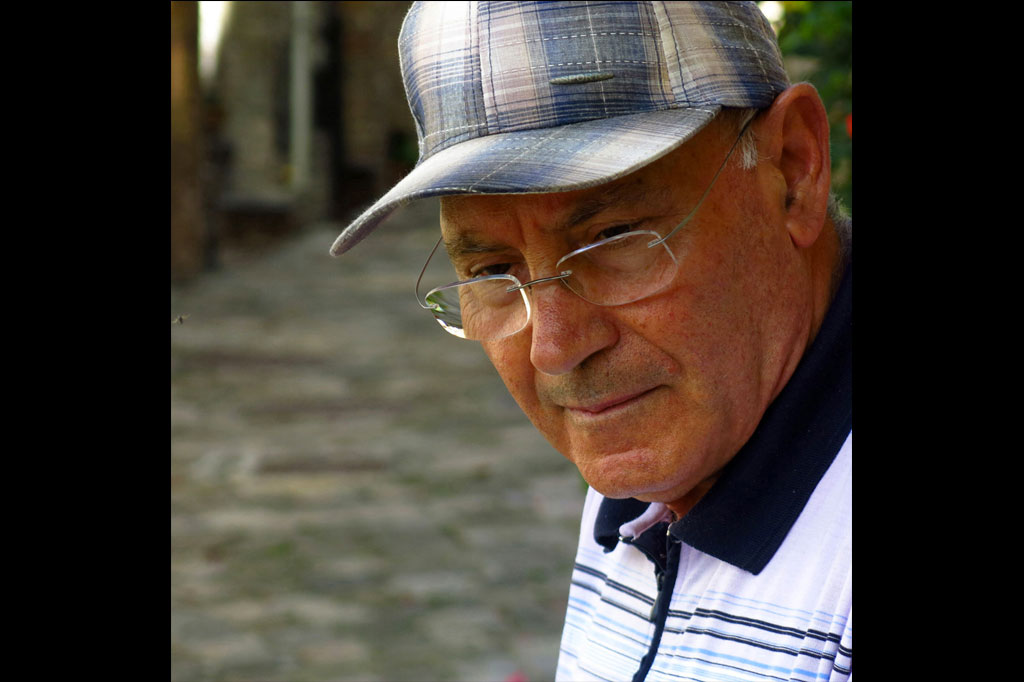
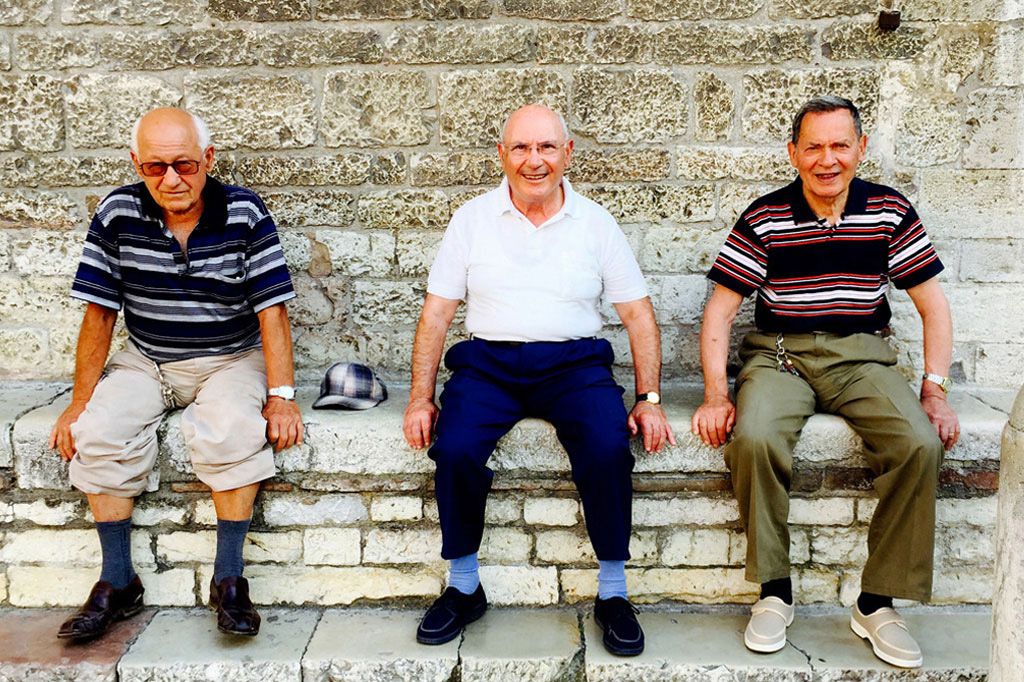
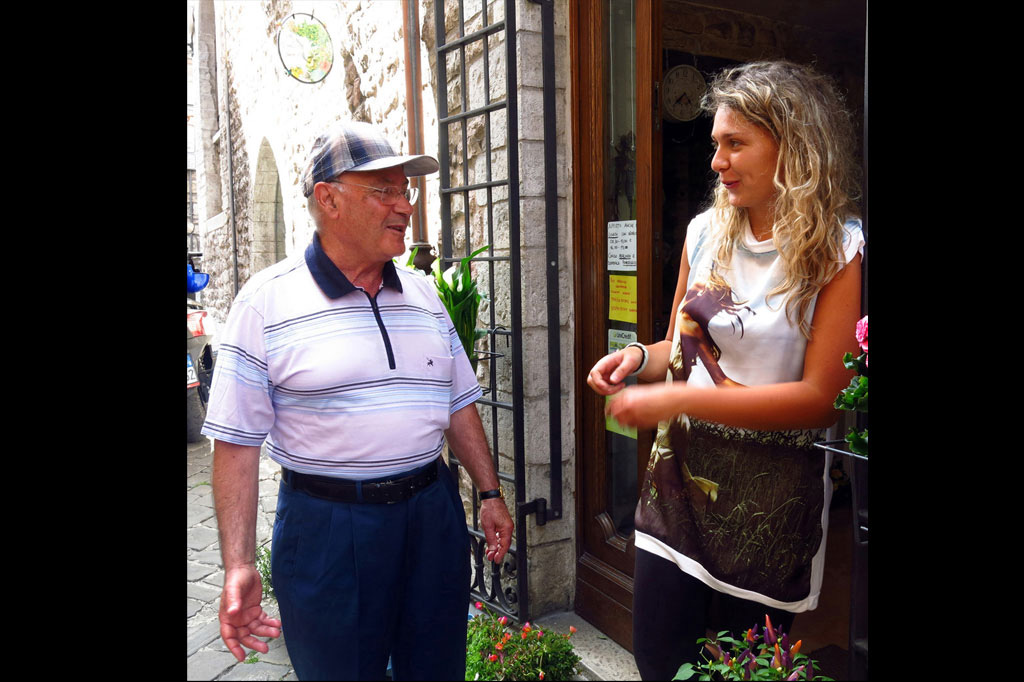
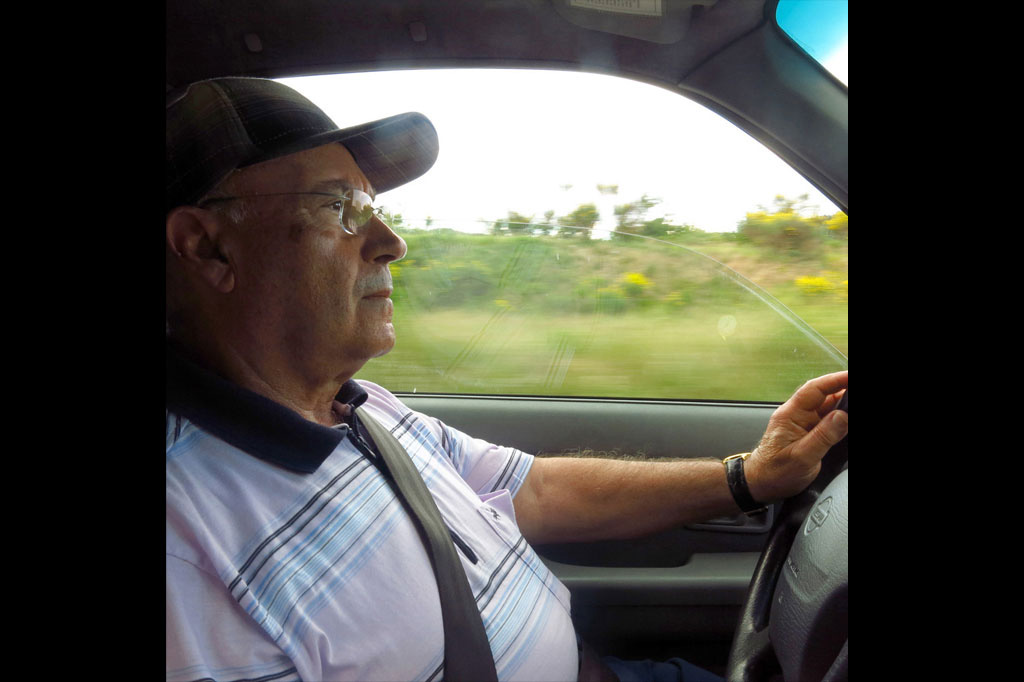
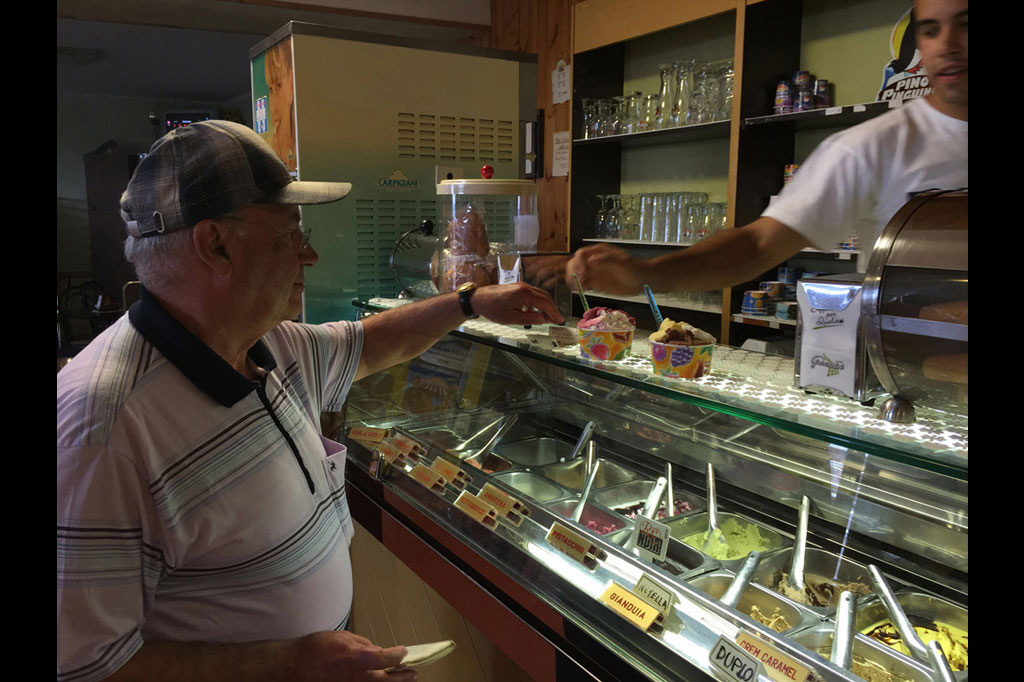
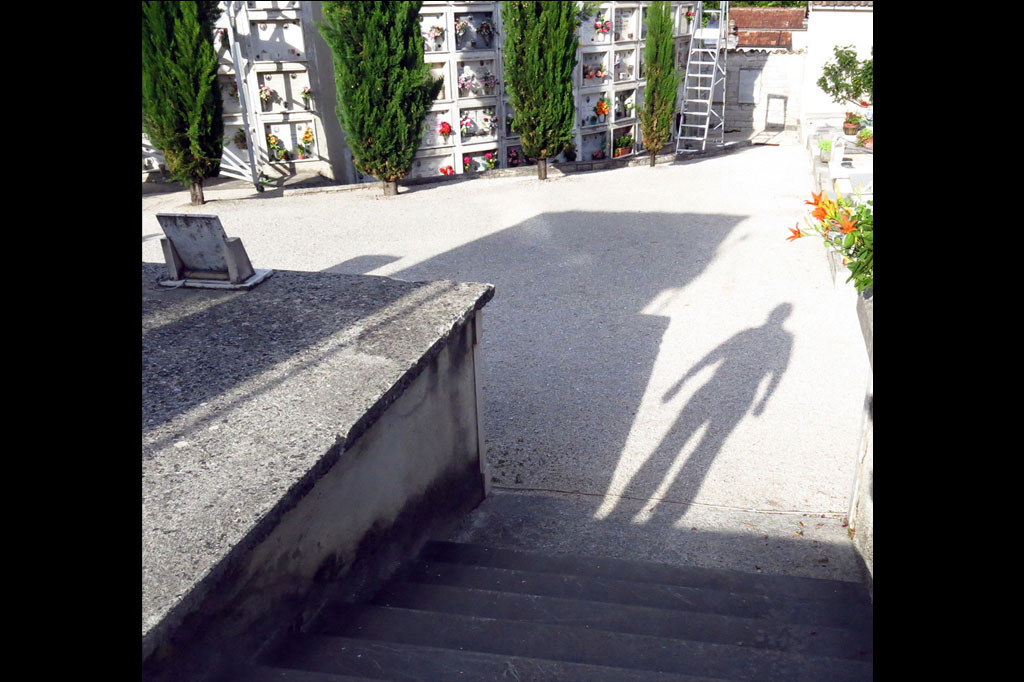
Comments